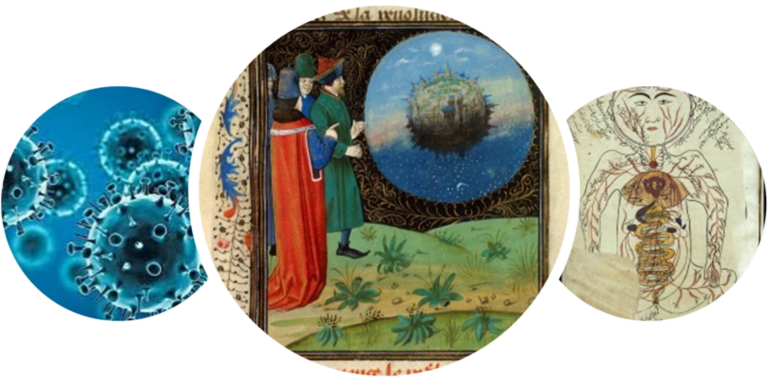Disease and History: Alumni Event
12 May 2022, 6:30 pm–7:30 pm

UCL History invites members of our alumni community to this roundtable discussion on the topic of 'Disease and History'.
This event is free.
Event Information
Open to
- All
Availability
- Yes
Cost
- Free
Organiser
-
Helena Vowles-Shorrock
Location
-
Gustave Tuck Lecture TheatreWilkins BuildingGower Street, LondonLondonWC1E 6DHUnited Kingdom
Professor Vivienne Lo: The Healing Arts across Medieval Asia
Despite growing awareness of the historical importance of the land routes through central Asia, very little is known about the exchange of healing arts along the so-called Silk Roads before the fourteenth century. In the case of China, new research has been stimulated by discoveries of copious medical writings dating from the Shang dynasty right through to late medieval times. Many of the newly discovered manuscripts have been excavated from third and second century BCE tombs along the course and hinterland of the Yangzi River which add to those recovered over a century ago from a walled-up Buddhist library cave in Dunhuang in the far notrthwest. Together they provide evidence of the sustained dynamic and innovative nature of exchanges in the healing arts in pre-modern times. In particular this short presentation will consider the implications of the 1313 translations of Chinese science and medicine by Rashid al Din of late medieval Tabriz.
Dr Elaine Leong: Medicine, Technology and the Everyday in Seventeenth-Century London
Health devices of all sorts now play a key role in our everyday lives. From Covid LFTs to Fitbits to surgical robots, it is difficult to imagine 21st century health and medical experiences without technology. While little studied, early modern London was also a place filled with health technologies including 2-feet long ear trumpets, wonder drugs and the infamous bloodletting tools and bowls. This presentation takes a look at one particular mid-seventeenth-century health object – Sir Richard Carew’s warming stone. By analysing a flurry of medical adverts and pamphlets, we will learn more about contemporary ideas of the body, and reflect upon the place of medical entrepreneurship and everyday technologies in early modern healthcare
Professor John Sabapathy: Fast and slow pandemic violence: zoonotic diseases and their environments between the thirteenth and twenty-first centuries
Pandemics involve violence one way or another. But what sorts of violence, and how has this changed over time? This talk will discuss both the current pandemic (and the increasing frequency of modern zoonotic pandemics) and the “greatest public health disaster” of the last millennium—namely the Black Death. The Black Death is emblematically identified as an extraordinarily mobile disease of the fourteenth century, but recent work shows that its origins lie deep in the thirteenth century and in a very different form of violence—the Mongol Empire’s. Without suggesting that there are things we can ‘learn from’ the Black Death, I will suggest it’s instructive to think about parallelisms, similarities, and differences between these different historical experiences.
The event will take place on Thursday 12th May 2022, 6.30-7.30pm, in the Gustave Tuck Lecture Theatre. There will be a drinks reception in the North Cloisters after the event.
To attend in-person, please register via Eventbrite: https://www.eventbrite.co.uk/e/disease-and-history-alumni-event-tickets-324607017327
If you are unable to attend in-person but would still like to watch the event then don't worry - we will be live streaming this event via this link: https://youtu.be/Yhuu_fXfXxc
 Close
Close

